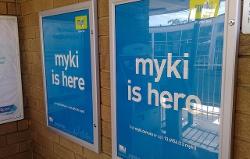Taking the myki: Melbourne's transport policy failures show importance of good policy design
For those of us who live in London, it is hard to imagine that Melbourne's versions of 'Boris bikes' or Oyster cards could be a failure.
For those of us who live in London, it is hard to imagine that Melbourne's versions of 'Boris bikes' or Oyster cards could be a failure. But, despite a pilot involving students in Melbourne, and looking and feeling like other successful bike share schemes, the Melbourne scheme was a palpable flop - and its version of our Oyster card is so unpopular it became an election issue.
